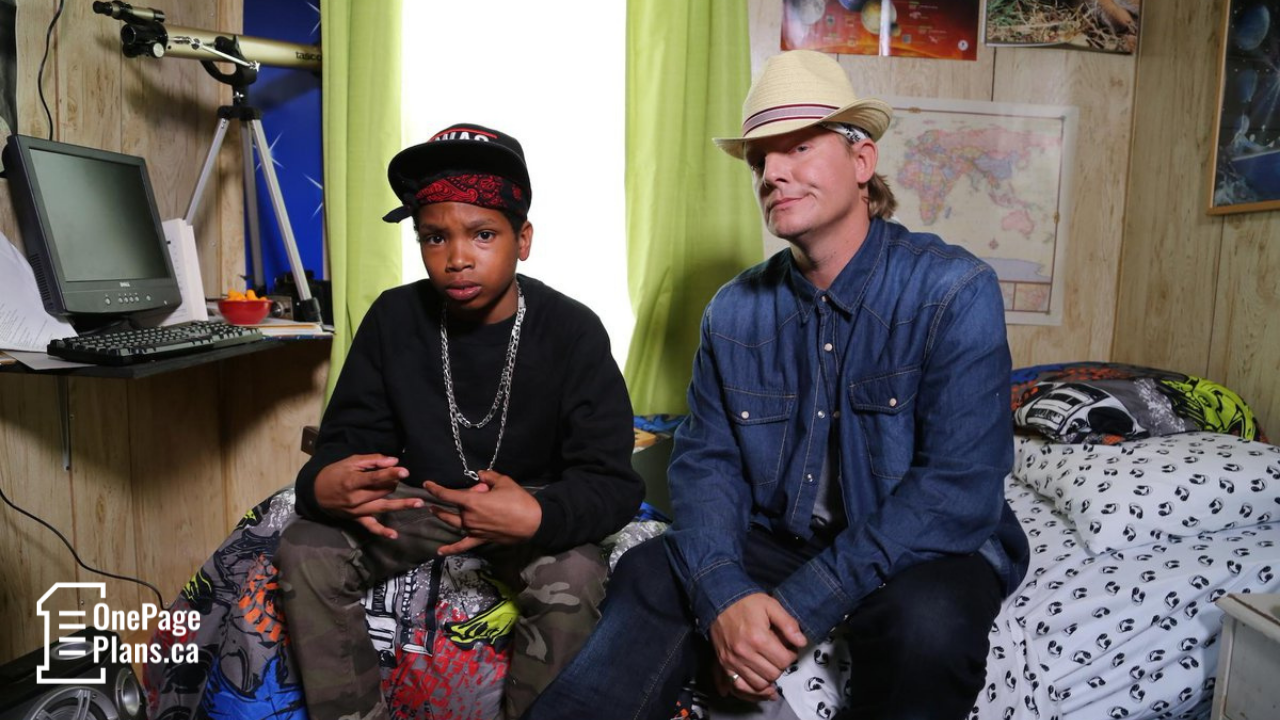Trying to achieve the impossible? Four Quick Tips from Someone who’s Done it.

During your career, you’ll likely be told that certain things are simply impossible.
Sometimes we accept that notion as fact.
But other times, we dig in our heels to prove the world wrong.
For Lori Nikkel, her opportunity to do the impossible came when COVID lockdowns swept the country. As the CEO of Toronto-based food rescue organization, Second Harvest, she knew that mass restaurant closures would mean millions of tons of food diverted to landfills at a time when the need for food for vulnerable Canadians was exploding.
Although Lori already had a three-year plan to expand Second Harvest nationally, it was clear that the need for that expansion was NOW.
So, instead of sticking to the three-year plan, she decided the only real choice was the impossible one: to condense that plan to a matter of weeks.
Getting there wasn’t easy. But in the end, Lori and her team crossed the finish line and kept millions of families fed during their hour of need.
While there a...
When Family and Career Collide

How knowing YOU can make all the difference
We all have moments when we re-think what success really means. When executive Heather Byrne and her husband moved out west to chase the ultimate career path, they found out that all that glitters isn’t gold.
Despite their professional success, they felt increasingly isolated from the deep family connections and traditions they left behind.
The solution finally revealed itself when Heather and her husband had an honest talk about their personal values and agreed that family really did need to come first.
In the end, the move not only proved to be a blessing for their family but their professional careers as well.
Here are four things we can learn from Heather about how to make your next big move the right one:
- Tune out the noise.
When enough people tell you you’re lucky for your lot in life, it’s easy to believe them. But, while you may be lucky, the real question to ask is, “are you happy?” Tuning out the noise to ...
Finding Your Path: Four Ways to Find Fulfilling Work from One of Canada’s Best-Known TV Personalities

When it comes to Canadian TV personalities, you’d be hard-pressed to find someone more steeped in our culture than Jonathan Torrens.
With an impressive list of credits from some of Canada’s most popular TV shows (including Royal Canadian Air Farce, Trailer Park Boys, and Letterkenny), he’s been a mainstay of this country’s entertainment scene for decades.
Like many stars before him, Jonathan decided to answer the big “what if” question by making the move to Los Angeles in pursuit of bigger things.
As part of the Hollywood machine though, Jonathan quickly realized he had to put his trust – and his career – in the hands of others.
In the end, Jonathan decided to return to Canada and embark on an entirely new strategy that put him back in the driver seat, and back to creating work he was truly passionate about.
Here are four things learned from Jonathan about how to build success through meaningful work:
- Be honest with yourself.
Take the time to think about what kinds of pro...
Four Tips to Keep Your Committee on the Rails

While serving as the lead on a massive capital campaign, Jewell Mitchell made one of the toughest calls of her professional life. She stopped a “dream team” of fundraisers dead in their tracks when she felt like the organizational values were being compromised.
It was a high-risk manoeuvre that could have seen millions of dollars walk out the door.
But in the end, it all worked out, and she learned a lot about the importance of sticking to your guns, even when it means potentially shooting yourself in the foot.
Here are 4 tips Jewell’s story can teach us about keeping committees on the rails:
- Create a clearly defined operating framework. Make sure everyone on the team knows their individual roles and how they support the overall mission. And ensure they all understand the role the group plays in the success of your organization. That way, if things go sideways or if people encroach on other’s roles, you’ll be able to course correct without ruffling any feathers.
- Assert your ...
Before abandoning your strategy, consider these 3 things

When turnaround specialist Zach Selch of Global Sales Mentor flew to Athens, Greece, to let go of an underperforming employee, he had his whole strategy clearly mapped out. But when he arrived in Greece, everything went sideways.
That day turned out to be day 1 of the country’s economic crisis. And before he could open his mouth to deliver the news, the employee told him that his wife just lost her job and that the two were expecting their first child.
Feeling the weight of so many extraordinary circumstances colliding all at once, Zach had a moment of compassion and decided to change course.
Rather than fire the employee, he decided to let him stay on as long as he needed to while he looked for another job.
It turned out to be a costly mistake and one that negatively impacted his entire team.
Here are a few tips we’ve gleaned from Zach’s experience to help you better roll out a strategy of your own:
- Don’t let emotions get the best of you. While it’s tempting ...
Is Your Business Facing a Tough Choice?

3 Tips from the man who turned Robin Hood into the 2nd Highest Grossing Film of 1991
Back in the early 90s, a struggling writer/producer by the name of John Watson had a screenplay that completely reimagined the legend of Robin Hood. In John’s version, Robin was a warrior of noble blood who returns from the Crusades to find that the home he knew is now rampant with corruption.
It was a bold reinvention that caught the eye of Hollywood and landed John two very different offers.
One of the largest studios offered him a “mind-blowing” amount of money for the screenplay but would shut John out of producing and all further involvement. The other offer was from a smaller studio for far less money, but in this deal, John could stay on as producer. The second option came with greater risk, but John ultimately left the money on the table and went with the second option anyway.
The bold choice turned out to be the right one. The film became the second highest-grossing film of 1991, amassing ...
Strategy’s Secret Sauce: How Data Can Help Your Strategic Plan Succeed

When we think of strategy, we often think of some masterful thinker using their experience and insights to keep one step ahead of the competition.
Although stories of visionary thinking and listening to your gut instincts makes for good entertainment, there is another essential part of strategy that doesn’t always get the credit it deserves: data.
InvestorCOM CEO Dave Reeve made one of the toughest calls of his career when he took the company through a major pivot, shifting from a service business to a technology platform. It wound up being a shining example of how data can help your team move forward in the face of immense challenges.
Here are three ways that data can make or break your strategic plan:
- Data mitigates risk. There are times when leaders must be bold, creative, and take risks. But even the risks should be calculated. And that means using data to shore up your rationale. While many of us think of data as a spreadsheet of computations, data can be everything from tr ...
The Importance of Communication in Strategic Planning: Four Tips for Doing it Right

When you’re standing on a six-inch ledge with a 2,000-meter drop straight down, it’s not exactly the ideal time to make critical decisions. But that’s what John Bourke, President of the Business Excellence Institute, had to face as he stood just shy of the peak of one of North America’s tallest mountains.
Between him and the peak was an overhang that required near spider-like abilities to climb. It was an obstacle he just wasn’t prepared for – mentally or physically. After some heart-wrenching deliberation and one final look at the impossible overhang, John decided the only course was to abandon the climb, something he’d prepped for more than a year.
What John didn’t realize at the time was that the biggest obstacle wasn’t, in fact, the overhang. It was his and his teammate’s lack of clear communication during this state of crisis.
Here are a few key lessons we can take from John’s decision-making during high-stakes, high-stress moments:
1. Don’t assume.
Even when things are h...
Four Tips for Making Colossal Decisions

Just over a year ago, Nova Scotia’s Chief Medical Officer of Health, Dr. Robert Strang, made one of the toughest calls of his life: he recommended the entire province shut down to stop the spread of a then-new virus called COVID-19.
It was a colossal decision that posed serious political, economic, and health implications. But it was a masterclass in how to act swiftly in the face of uncertainty.
Here are the four things we learned from Dr. Strang about how to make colossal decisions:
1. Review data but trust your gut. In the early days of COVID, getting sound data was extremely difficult. In the face of this, Dr. Strang poured over any data he could get his hands on and then relied on his expertise and that of his team to weigh in on what it all meant for Nova Scotians.
2. Align yourself with key leadership. Dr. Strang didn’t and couldn’t do it alone. He worked closely with the Premier and provincial leadership to bring them all on the same page. That paved the way for plan executi...

